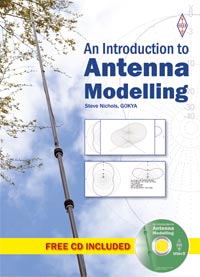The RSGB Propagation Studies Committee (PSC) is keen to encourage radio amateurs to take part in an experiment during the partial solar eclipse taking place on Friday 20th March 2015.
The path of totality will pass north of us, over the Faroe Islands, but the UK will experience up to 89% totality (depending upon where you live).
This is a great opportunity to try some simple experiments to see how the sun’s ultra violet output affects our ionosphere and how some radio waves are propagated.
On the morning of Friday March 20th 2015 the D layer above the UK may not be as strong due to the eclipse, and you may be able to hear stations on the lower bands – 1.8 MHz, 3.5 MHz and perhaps 7 MHz that would otherwise be inaudible during the day.
For example, if you listen for a medium wave radio station that is more than 250-300 miles away during the day you may not hear it – it is too far away for its ground wave signal to reach us, and any sky wave signal is absorbed by the D layer of the ionosphere.
But at night its sky wave signals are not absorbed as there is no D layer and they are free to be reflected back to earth from the higher E/F layers.
This is why you can hear distant medium wave stations on a radio at night, but they aren’t there during the day. You get a similar effect on Top Band, and to a lesser extent 80m/40m.
We are keen to encourage radio amateurs to conduct experiments during the eclipse, especially if they can use software defined radios (SDRs) to record the whole eclipse period for later analysis using Spectrum Lab or similar, or if they can use WSPR.
For the latest information see the RSGB site.
PSC has also devised a simple experiment for schools to undertake using portable medium wave radios. A PDF flyer about the eclipse propagation experiment is available to download here.
The information we gather will also be shared with the Rutherford Appleton Laboratory at Harwell.
The partial eclipse starts in the Midlands at about 08:25 GMT on Friday March 20th and ends at 10:41 GMT. Maximum eclipse will be at about 09:30 GMT.










